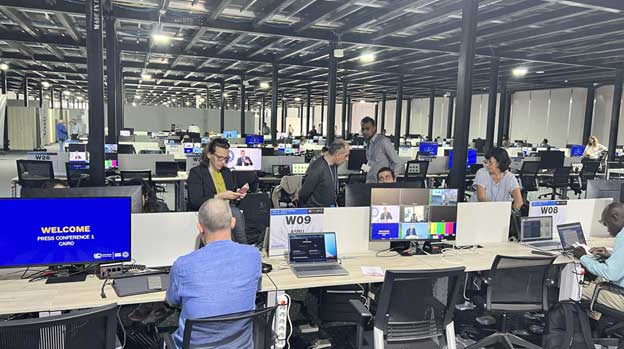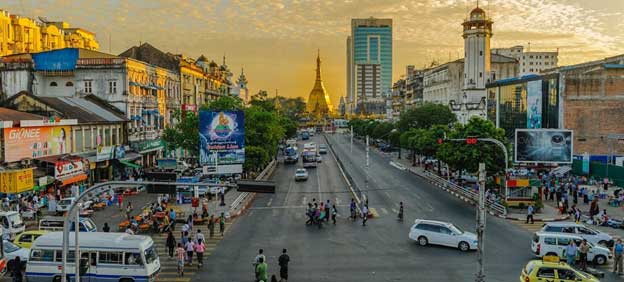Who is Thomas Kwoyelo, Ugandan LRA rebel commander on trial for war crimes? | Lord’s Resistance Army News
Uganda’s high court will on Tuesday deliver judgement on the case of Thomas Kwoyelo, a former commander of the rebel group, Lord’s Resistance Army (LRA), after more than 15 years of delay.
Kwoyelo is being tried by the international crimes division of the court based in northern Gulu city, a region at the centre of a decades-long rebellion.
It’s the first time Uganda has tried an LRA member, making this a historic moment for the country.
Murder, rape, intent to kill and several other war crimes make up the 78 counts of charges against Kwoyelo, who has denied the claims.
The trial is taking place amid several controversies: some have advocated for Kwoyelo’s release based on how long he was held in pre-trial detention by the Ugandan authorities, and based on the fact that others have faced amnesty. But others, including victims, say Kwoyelo was involved in killings and torture, and should face justice.
Here’s all you need to know about Kwoyelo’s trial and the LRA militia group:
Who is Thomas Kwoyelo?
Kwoyelo, believed to be in his fifties, was a low-level commander of the LRA, tasked with caring for the militia’s injured members, according to his testimony.
He was forced to join the LRA in 1987, after the group’s members abducted him on his way to school at age 12, at the peak of the rebel conflict. He went on to become a senior commander, using the alias Latoni, and overseeing the treatment of wounded fighters.
In 2009, Kwoyelo was captured in the neighbouring Democratic Republic of the Congo during a raid by regional forces. The LRA rebels had been forced out of northern Uganda into DRC, and other neighbouring countries a few years earlier because of the Ugandan military’s offensives on the group. Kwoyelo was brought back to the country, having sustained a bullet wound to the stomach.
He then spent the next 14 years in prison as the prosecution put the case against him together. Analysts say the complexity of the crimes, along with delays from COVID-19, contributed to the lengthy delay as the case was repeatedly postponed.
Kwoyelo is accused of murder, rape, kidnapping with intent to murder, pillaging, aggravated robbery, cruel treatment, torture and other war crimes.
Defence lead lawyer Caleb Akala has consistently pleaded Kwoyelo’s innocence, arguing that he was himself a child victim of the LRA. However, according to witnesses and court documents, Kwoyelo led several LRA incursions and was involved in killings.
“All attacks by the LRA which took place in Kilak County, Amuru District between 1987 and 2005, the subject of charges in this indictment, were either commanded by him or were carried out with his full knowledge and authority,” one document read.
Who is Joseph Kony and what is the LRA?
Joseph Kony founded the LRA in 1984, as a rebel group aiming to overthrow longtime Ugandan President Yoweri Museveni. At the time, the Ugandan civil war had just ended with Museveni ousting the government in power, and a series of rebel groups from Uganda’s Acholi northern tribe rose to challenge his rule.
As a former altar boy, Kony claimed to be a spiritual medium, and aimed to create a Christian state based on the 10 biblical commandments. His army terrorised northern Uganda and his members were notorious for cutting off people’s limbs in their attacks.
Kony also focused on children: he ordered the abduction of tens of thousands of children that LRA members used as sex slaves or child soldiers. Some 66,000 of the children he abducted went on to become soldiers, according to some accounts. LRA fighting resulted in the displacement and mutilation of thousands of civilians, according to Human Rights Watch. Some two million people were displaced across northern Uganda, and in northeastern DRC, due to the group’s terror activities.
In 2003 after the International Criminal Court was founded, the Ugandan government referred Kony’s case, along with that of four other LRA commanders to the court. The ICC issued an arrest warrant for Kony in 2005. According to the court, Kony is suspected of 36 counts of war crimes and crimes against humanity, allegedly committed between at least July 1, 2002 and December 31, 2005, in northern Uganda.
The cases against Raska Lukwiya, Okot Odhiambo, and Vincent Otti were terminated, as those men have passed away.
In 2021, fourth member Dominic Ongwen became the first LRA commander to be sentenced by the ICC. He was sentenced to 25 years in a Norwegian prison, on 61 counts of war crimes and crimes against humanity.

Amnesty and peace talks
In 2000, the Ugandan government offered amnesty to members of the group who wished to surrender, with many former child soldiers choosing to return home. However, the group’s rebellion remained active.
The LRA’s fighting in Uganda was largely diminished after Ugandan forces pushed the group into parts of the Central African Republic, DRC, Sudan, and South Sudan in 2006.
Amid the offensives, Kony agreed to ceasefire talks mediated by southern Sudanese leaders in Juba. But the talks fell apart in 2008 after Kony refused an amnesty offer, arguing that he did not commit atrocities.
The LRA is designated as a terror group by the United Nations, the United States, the United Kingdom and the European Union. Kony has remained in hiding since the ICC arrest warrant was issued. His whereabouts are still unknown. The army has reportedly shrunk from about 3,000 men to about 100.
In March, the ICC said it would try Kony in absentia from October 2024.
Perpetrator and victim?
In northern Uganda, where Kony’s LRA operated, several of the group’s former members surrendered after the 2000 amnesty and now live freely in the community, as Al Jazeera reported in February 2024.
However some groups, such as the UN high commissioner for human rights, have kicked back against the amnesty policy, saying it stands in the way of prosecuting war crimes.
Some in Gulu say Kwoyelo should be granted amnesty like the other former soldiers.
“Our children are innocent because they were forcefully conscripted into combat,” Okello Okuna, a spokesperson for Ker Kwaro Acholi, a traditional kingdom in Gulu, told Al Jazeera in February.
Kwoyelo’s defence team has also argued that he was a child when he was abducted and was a victim, too. Defence lawyer Charles Dalton Opwonya said the government “failed to protect” the former rebel. “He was abducted as a child and trained,” he previously told Al Jazeera.
But victims who alleged Kwoyelo killed their family members have pushed for his sentencing.
“He was a rude person and a fighter,” a victim who was born in LRA captivity and identified only as Jackline, told Al Jazeera in February, adding that Kwoyelo killed her father for failing to follow orders.
Rights groups, such as Avocats sans Frontiers, pointed out that holding Kwoyelo in detention for more than a decade muddles the case for the prosecution.
Human Rights Watch in January urged the court to speed up the case and ensure justice for Kwoyelo’s victims.
Check out our Latest News and Follow us at Facebook
Original Source







